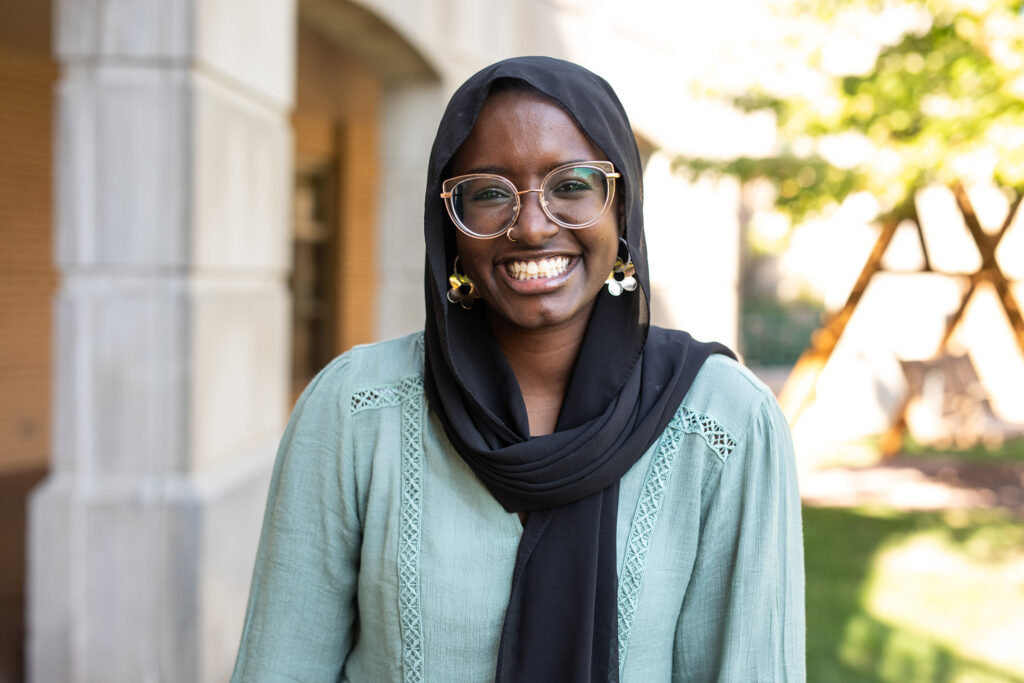Lojain Elkhidir wants everyone to know that going to college is difficult. But more than that, she wants everyone to know that it’s ok to talk about it.
“Coming to college can be really isolating,” Elkhidir said. “You’re in a totally new environment, away from family; you don’t know anyone; and you’re tasked not only with surviving but succeeding in an academically rigorous environment. That can have an effect on you.”
That’s one reason Elkhidir is a Peer Health Educator (PHE). PHEs are undergraduate student volunteers dedicated to health promotion and wellness at WashU who receive training and supervision from Health Promotion Services, and work on outreach programming that covers three subgroups – alcohol and other drugs, mental health, and sexual health. Elkhidir’s work as a PHE addresses mental health.
“There definitely can be a stigma when it comes to talking about mental health issues,” Elkhidir said. “Part of being a PHE is having these conversations so they feel less daunting or scary, because they can be scary, and we want to acknowledge that and hold space for people to talk about it. People come from different backgrounds, so their perception of mental health or accessing mental health care can look different. We want to make sure we’re normalizing talking about mental health.”
There definitely can be a stigma when it comes to talking about mental health issues. Part of being a PHE is having these conversations so they feel less daunting or scary, because they can be scary, and we want to acknowledge that and hold space for people to talk about it.
PHEs are committed to creating a healthier WashU by planning and implementing popular programs and health promotion communications. Some of the programming has included a vaping panel, a prescription drug disposal program, Gratitude Week, an imposter syndrome panel, encouraging students to complete suicide prevention training, QPR and Kognito, and Sex Week to name a few.
Elkhidir said that another important aspect of her work as a PHE is to spread awareness about the resources available to WashU students.
“So often, students I talk to don’t know the resources that are available to them right here on campus, for instance, the nine free counseling sessions through the Center for Counseling and Psychological Services (CCPS), or the peer counseling help lines,” she said. “We also have 24/7 access to physicians and counselors through TimelyCare, so anytime a student needs anything at all – medical or mental health wise – they can get help.”
While the PHE program allows Elkhidir to help other students and enrich her community, it has also enriched her own experience while at WashU. A junior studying biology with minors in medical humanities and psychology, Elkhidir said being a PHE has had a positive impact on her social and academic lives, especially as she looks toward a future of becoming a doctor.
“It’s really been great to be around and meet like-minded people who have a similar passion for mental health advocacy,” she said. “It’s been a really great space to broaden my knowledge and practice, and be around a really wonderful group of people.”
